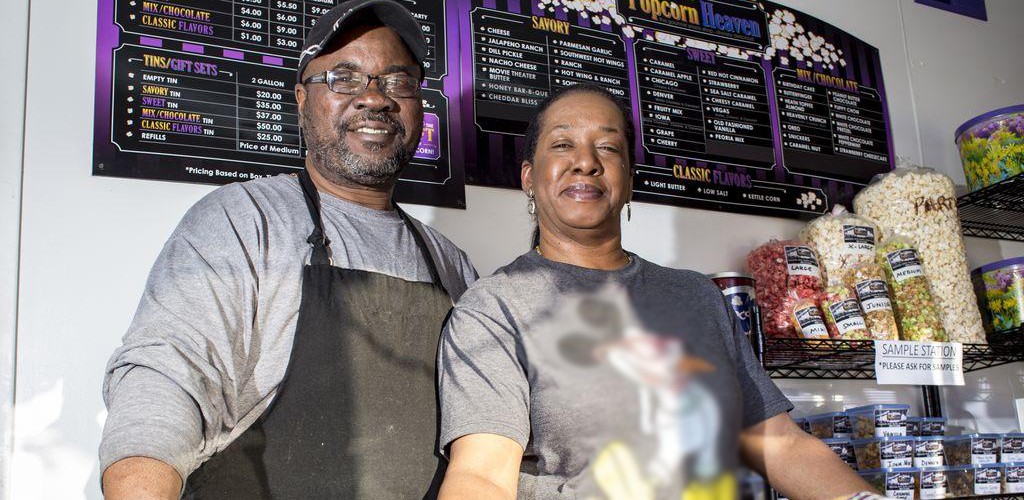$100 Million Pledge to Close Racial Equity and Justice Gaps
State Farm® is committed to supporting minority communities and issues of racial equity and justice
2020 forced American society to take a hard look in the mirror. What we saw was injustice, inequity and inequality facing many communities across the country.
To promote change State Farm is pledging $100 million over five years to support minority communities and issues of racial equity and justice. This is just one part of the insurer’s ongoing efforts to bring about change.
“State Farm has a long history and commitment to social justice,” said Victor Terry, Chief Diversity Officer and Vice President of Public Affairs at State Farm. “Today, we take our latest step in this important journey. Doing nothing is unacceptable. Powerful solutions must be brought to the table, and we need a lot of people at the table, too.”
The $100 million contribution will support a variety of community-focused projects, including small business support, funding for affordable housing programs, and educational advancement programs. Funds will be a combination of charitable contributions and community investments.
“This pledge is truly a continuation of our historical, nearly 100 year-support of organizations that help to meet the most pressing needs of the communities where we live and work,” said Terry.
That near 100-year history has included support for affordable housing and economic empowerment for underprivileged communities across the United States. One such organization is the Local Initiatives Support Corporation (LISC). During the 20-year relationship, State Farm has invested $149 million in LISC’s community development programs. Just this year, State Farm provided LISC $10 million in COVID-19 small business funding for Illinois companies struggling in the wake of a global pandemic.
How did it play in Peoria?
This funding will boost under-invested communities and their residents. One example of its impact is Young’s Popcorn Heaven, a minority, female-owned, gourmet popcorn shop in Peoria, IL. Owners, JoAnn and Greg Young, opened their shop in 2015, and like many new, small businesses, they worked hard to achieve a positive cash flow.
The retired state employee and construction tradesman always dreamt of owning their own business. After saving for years, they finally opened Popcorn Heaven. Then, in 2019, they faced a 50% monthly lease increase and began exploring new locations for their business.
After finding a building and researching different financing options, the Young’s came across LISC. Using State Farm funds, LISC provided a $165,000 loan to purchase and renovate a new building.
“The loan helped me increase my production and sales. My new property is in a more trafficked area, it’s a lot bigger and better for social distancing,” shared Young. “But more importantly, it saved two full-time and five part-time jobs, and decreased our overall expenses. It’s also helping us get through the pandemic, when lots of businesses are closing their doors permanently.”
Equity gaps exacerbated during COVID-19
- The pandemic created a lot of difficulty for small businesses; 15% have closed their doors permanently. Minority-owned businesses were hit worse: more than 26% of Black- and 19% of Latino-owned businesses have closed.1
- Many American workers lost their jobs or had wages cut significantly as well. Hispanic adults were hit the hardest, 61% of Hispanic adults stating they or someone in their household either lost their job or received less wages – compared to 44% of African Americans and 38% of Whites..2
“State Farm helps people realize their dreams. But when some people don’t have the resources to get on a path toward accomplishing their goals – be it an education, an affordable home, or a chance to start the business of their dreams – we strive to be part of the solution,” said Terry.
Sources: 1-Brookings Institute 2-Accion Opportunity Fund
The $100 million commitment is aligned with the Business Roundtable (BRT) Racial Equity and Justice Initiative that was launched in June. The BRT is a nonprofit association based in Washington, D.C. whose members are CEOs of major U.S. companies. On October 15, BRT released the Special Committee’s comprehensive strategy to advance racial equity and justice.
For over 100 years, the mission of State Farm has been to help people manage the risks of everyday life, recover from the unexpected and realize their dreams. State Farm and its affiliates are the largest providers of auto and home insurance in the United States. Its more than 19,400 agents and 67,000 employees serve over 91 million policies and accounts – including auto, fire, life, health, commercial policies and financial services accounts. Commercial auto insurance, along with coverage for renters, business owners, boats and motorcycles, is also available. State Farm Mutual Automobile Insurance Company is the parent of the State Farm family of companies. State Farm is ranked No. 44 on the 2023 Fortune 500 list of largest companies. For more information, please visit http://www.statefarm.com.
Media Contact

|
Gina Morss-Fischer Media Specialist (IA, IL, State Farm Corporate HQ, KS, MO, NE) |

